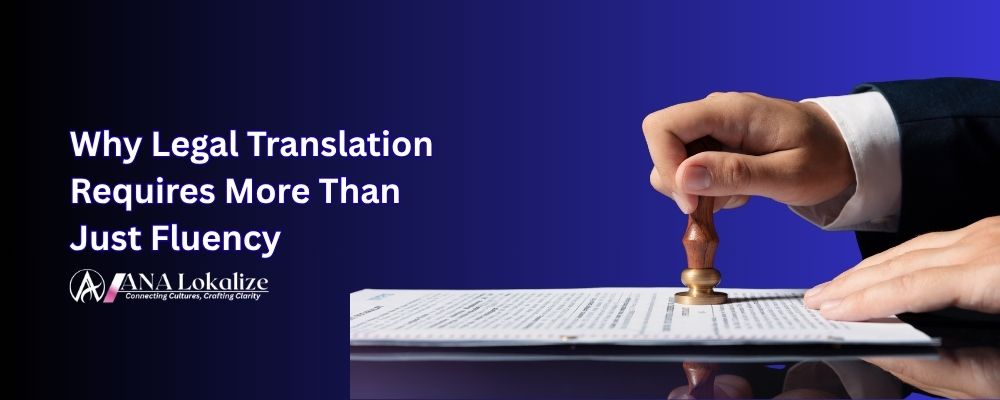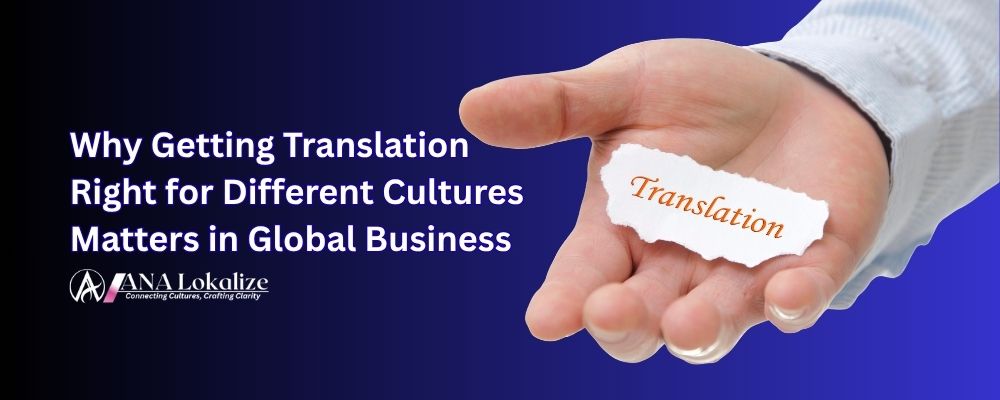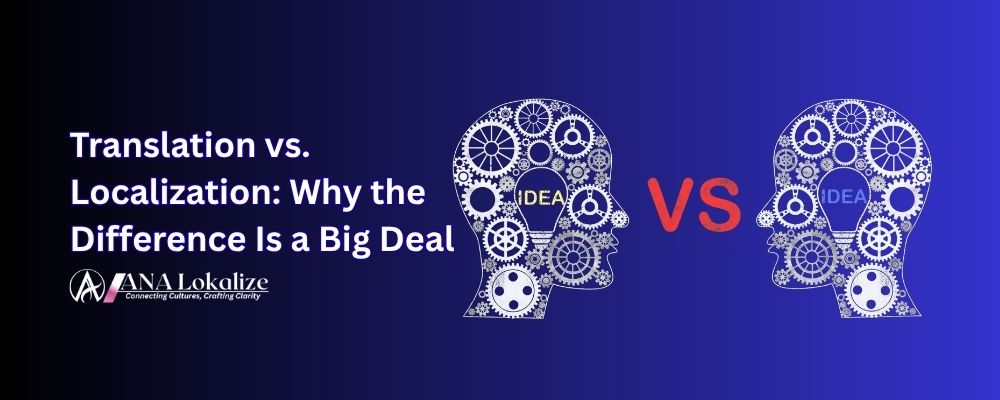When dealing with legal documents, even the smallest mistake can lead to serious consequences. A single word translated incorrectly might change the entire meaning of a contract, court order, or immigration file. That’s why legal translation requires much more than just being fluent in two languages. It demands a deep understanding of legal systems, terminology, and the ability to interpret meaning with absolute accuracy.
At ANA Lokalize, we know the difference between general translation and legal document translation. It’s not just about speaking the language—it’s about knowing how the law speaks.
Legal Language Is a Language of Its Own
Legal documents use a different kind of language. This language is formal, detailed, and often very specific. Even native speakers of a language may struggle to fully understand legal texts without legal training.
For example, the word “consideration” in a legal contract doesn’t mean being thoughtful—it refers to the value exchanged between parties. Or, “discharge” might mean ending a contract, not releasing a person. These are not words you can translate using everyday meaning.
A certified legal translator must know how legal terms function in both the source and target languages. They must also understand the legal systems of both countries, as laws vary from one place to another.
It's About Concepts, Not Just Words
Legal translation is not word-for-word. It’s concept-for-concept. A legal translator must interpret the meaning of a legal term or clause and then find the closest equivalent in the target language’s legal framework.
Let’s say you’re translating a power of attorney document from English to Hindi. The term may not exist in the same way in Indian law. So the translator must understand both legal contexts and use the correct expression that holds the same legal weight.
Without this deep knowledge, translations can become legally invalid—or worse, misleading.
Different Laws, Different Systems
Not all countries follow the same type of legal system. Some follow common law (like the U.S. and India), while others follow civil law (like France and Japan). Then there are religious and customary laws in many countries.
When translating legal documents between countries with different systems, translators need to understand how each system works. This includes:
Legal procedures
Court structures
Types of legal documents
Roles of legal professionals
Rights and obligations under law
This is why language fluency alone is not enough. Legal translators must often consult legal experts, reference local laws, and stay updated with legal changes.
Mistakes in Legal Translation Can Be Costly
A mistake in legal translation can:
Void a contract
Delay court proceedings
Lead to visa rejection
Cause a business dispute
Trigger financial penalties
Misrepresent rights and obligations
For example, if a terms and conditions agreement is not properly translated for a product sold in a foreign country, it could expose a company to lawsuits or government fines.
That’s why legal compliance translation must always be handled with precision. A misstep isn’t just a language issue—it becomes a legal and financial risk.
What Makes a Good Legal Translator?
A skilled legal translator is:
Fluent in both languages, with excellent grammar and vocabulary
Trained in legal systems, terminology, and document structure
Experienced in legal writing and formatting
Accurate, careful, and discreet
Certified or recognized by legal authorities in some countries
At ANA Lokalize, we work only with qualified legal translators who meet all of these standards. Many of them have a background in law or have worked in legal settings. This helps ensure that every translation is correct, reliable, and ready for official use.
Types of Documents That Need Legal Translation
We translate a wide range of legal documents, including:
Contracts and agreements
Business incorporation papers
Immigration and visa forms
Court judgments and legal filings
Affidavits and sworn statements
Privacy policies and compliance documents
Terms and conditions for products and services
Intellectual property (trademark, patent) documents
Each document has its own structure, legal importance, and risk if translated incorrectly.
ANA Lokalize: Your Trusted Partner in Legal Translation
When it comes to legal content, there is no room for error. At ANA Lokalize, we offer:
Certified legal translators with proven expertise
Multilingual legal support in over 100 languages
Industry-specific knowledge for legal, immigration, corporate, and government documents
Strict confidentiality and secure handling of sensitive materials
Fast turnaround with accuracy guaranteed
Whether you're a law firm, corporate legal team, or individual needing legal document translation, we provide the reliability and professionalism you need.
Final Thoughts
Legal translation is not a task for someone who just knows two languages. It requires deep legal understanding, precision, and professional responsibility. One small mistake can carry huge consequences in a courtroom, a government office, or a business deal.
At ANA Lokalize, we don’t just translate legal documents—we protect your meaning, your message, and your legal standing.
Choose expert legal translation. Choose ANA Lokalize.




